Rental car insurance is a necessary evil and you’re almost always sold on it at the rental counter. But before you agree to the upsell, it’s a good idea to find out if your credit card comes with insurance coverage for rental cars. If it does, you might be able to forego the options offered by the rental agency if you charge the cost of the rental to your card.
The best credit cards for rental insurance include the MBNA Rewards World Elite Mastercard and the suite of BMO World Elite Mastercards – but before you drive off on your adventure, be sure to confirm your coverage and supplement it when necessary. We’ll cover everything you need to consider below.
Never miss an amazing deal again + get our bonus 250+ page eBook for FREE. Join 50,000 other Canadians who receive our weekly newsletter – learn more.
How credit card rental car insurance works
If your credit card comes with rental car insurance, it’s easy to use – just charge the full cost of the rental to the card. You must also decline the coverage provided by the rental car company.
That said, there are a few important things to consider.
When you select a rental car, make sure the MSRP of the vehicle doesn't exceed what your card covers. You should also confirm that your coverage doesn’t exclude any particular vehicle types. Getting a free upgrade to a BMW or Cadillac seems great, but if the MSRP exceeds your credit card coverage, you could find yourself in an expensive situation if you get into an accident.
Check your card’s policy terms to see how long your coverage lasts. Most cards offer somewhere between 31 and 48 days of rental car insurance. If you need coverage beyond this, you’ll need to purchase it.
Follow your car rental agreement and obey the law. If something happens to the car and you’re in violation of your agreement (or the law), your credit card won't cover you. Similarly, ensure that any additional drivers are listed on the rental contract. Failing to do so could forfeit your coverage in the event of a claim.
Pro Tip: If you plan to use rewards points to pay for your rental, only credit cards that belong to the program will provide coverage. For example, if you use your AIR MILES to help pay for your rental, only an AIR MILES branded card will provide rental car coverage.
Primary vs. secondary car insurance coverage
The insurance policy you get will either provide primary or secondary coverage, which specifies how the policy is paid out following a covered claim.
With a primary policy, the card issuer pays out first. If you have a secondary policy, you’ll be expected to file a claim with your personal auto insurance company and pay your deductible first. Then, the credit card issuer will cover additional costs.
If your personal insurance policy isn’t valid internationally, your secondary credit card coverage will essentially become primary during your international travels.
CDW vs. LDW
A collision damage waiver (CDW) and a loss damage waiver (LDW) are two of the most common types of rental car insurance provided by credit cards. While they sound the same, there are subtle differences.
- Collision damage waivers typically cover issues like vandalism, fire, and extreme weather. They pay for damage done to the car in the event of an accident. Having CDW credit card coverage allows you to decline it from the rental agency.
- Loss damage waivers don’t pay for collision damage but instead cover theft or loss of use of the vehicle.
You'll need to waive both of these coverages if you use your card’s rental car insurance.
Things to keep in mind
Although these insurance policies are offered when you rent a vehicle in Canada, coverages may vary when you travel abroad. For instance, in the United States, supplementary liability insurance is offered but in Canada, rental car agencies are required by law to provide it.
Remember, too, that your personal car insurance policy will probably only apply to car rentals in Canada and the United States. If you’re traveling internationally, don’t count on that policy to cover you.
Learn more: 17 Types Of Credit Card Insurance
Questions to ask about your coverage
If you know you should ask your credit card issuer about insurance but don’t know where to begin, we’ve got you covered. Here are useful questions you can use as starting points for learning about your coverage:
- What insurance is included with my credit card? Although the terms and conditions document should be straightforward, a customer service agent can go over each type of coverage if you need clarification.
- Are there any exclusions to what’s covered? You’ll want to understand whether your coverage is (or isn’t) valid in specific countries or for a specific period of time.
- Are any vehicles excluded from coverage? It doesn’t hurt to find out if certain vehicles won’t be covered through your card’s insurance, especially if you rent unique, new, or specialized vehicles.
- Is the insurance coverage primary or secondary? You want to understand whether the credit card coverage is the first insurance to pay or whether you’d need to go through your personal auto insurance policy first, if applicable.
- How do I file a claim? Ask the agent to walk you through the steps you would need to take to file a claim. Many providers allow you to submit a claim online, in person, or over the phone.
Pro Tip: Before you set out for a trip, check your credit card's insurance certificate. It’s not a bad idea to bring a copy of it on your travels to show the rental agency if they get pushy about selling you coverage.
Do all credit cards come with car rental insurance?
No, rental car insurance is not a standard benefit of all credit cards. This is why it’s important to check your card’s terms and conditions to see what coverage you have.
Among credit cards that do offer rental car insurance, coverage limits vary. Check your policies before booking your rental car to ensure you’re maximizing your benefits and minimizing your out-of-pocket expenses.
Best credit cards for rental car insurance
Here are our choices for cards that provide the best rental car coverage.
| Category | Credit card | Current offer | Annual fee |
|---|---|---|---|
| Best overall | MBNA Rewards World Elite Mastercard | 30,000 bonus points (terms) | $120 |
| Runners up | BMO AIR MILES World Elite Mastercard | Up to 7,000 bonus miles, first year free (terms) | $120 |
| BMO Ascend World Elite Mastercard | Up to 100,000 bonus points, first year free (terms) | $150 | |
| BMO CashBack World Elite Mastercard | Up to $480 cash back in the first year, first year free (terms) | $120 | |
| Best for high CDW coverage | American Express Gold Rewards Card | Up to 60,000 bonus points (terms) | $250 |
| Best for no annual fee | Scotiabank American Express Card | 5,000 bonus points (terms) | $0 |
1. Best overall: MBNA Rewards World Elite Mastercard
Insurance coverage: Rental car theft and damage, accident, and personal effects
Coverage amount: $200,000 accident/$1,000 personal effects
Coverage period: Coverage begins when picking up the rental car until the rental period ends, you drop off the vehicle, or your coverage is terminated.
The MBNA Rewards World Elite Mastercard takes first place for best card with rental insurance. Although there are steep income requirements, you get a fantastic insurance package with a dozen types of coverage. You’ll also earn rewards at a rate of up to 5 points for $1 spent, plus get up to 30,000 bonus points and a 10% birthday bonus each year.
2. Runners up: BMO World Elite Mastercards
Insurance coverage: Rental car theft and damage, accident, and personal effects
Coverage amount: $200,000 accident/$1,000 personal effects
Coverage period: Coverage begins when picking up the rental car until the rental period ends, you drop off the vehicle, or your coverage is terminated.
Our runners up are the suite of BMO World Elite Mastercards. They have the same income requirements as our top pick and include the same coverages, but the rewards lag slightly behind. You have three card options to choose from, each of which offers something slightly different but equally great. All three cards include the same insurance package.
3. Best for high CDW coverage: American Express Gold Rewards Card
Insurance coverage: Theft, loss, and damage of the rental car
Coverage amount: $85,000
Coverage period: Coverage begins when picking up the rental car until the rental period ends, you drop off the vehicle, or your coverage is terminated.
The American Express Gold Rewards Card card frequently ranks high in our studies of the best credit cards, so it’s no surprise that it offers great rental car insurance. While it has a fairly high annual fee of $250, you’ll get an annual travel credit that can help offset it. Plus, you’ll enjoy a huge welcome bonus and steady earn rate. The extensive insurance package and flexible reward options make this one of our favourites.
4. Best for no annual fee: Scotiabank American Express Card
Insurance coverage: Rental car collision/loss damage
Coverage amount: $65,000
Coverage period: Coverage begins when picking up the rental car until the rental period ends, you drop off the vehicle, or your coverage is terminated.
Although the Scotiabank American Express Card doesn’t have as extensive insurance offerings as other cards on our list, it includes rental car insurance and charges no annual fee. The rewards aren’t bad, either; you’ll earn up to 3 points per $1 spent and receive a generous welcome bonus.
FAQ
How do I know if my credit card has rental car insurance?
You can confirm whether your credit card has rental car insurance by reading the benefits booklet. It should include all coverage types and their policy limits. If you still have questions, contact your issuer to speak to a customer service representative.
Does credit card rental car insurance cover theft?
Most credit card rental car insurance policies include theft coverage but it’s always a good idea to review your policy details to confirm coverage and exclusions.
Does the CIBC Costco Mastercard have car rental insurance?
No, the CIBC Costco Mastercard does not include travel or rental car insurance.
creditcardGenius is the only tool that compares 126+ features of 228 Canadian credit cards using math-based ratings and rankings that respond to your needs, instantly. Take our quiz and see which of Canada's 228 cards is for you.


 ×7 Award winner
×7 Award winner 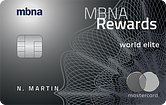



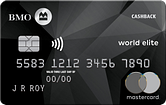

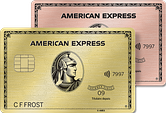

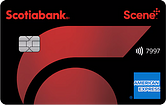


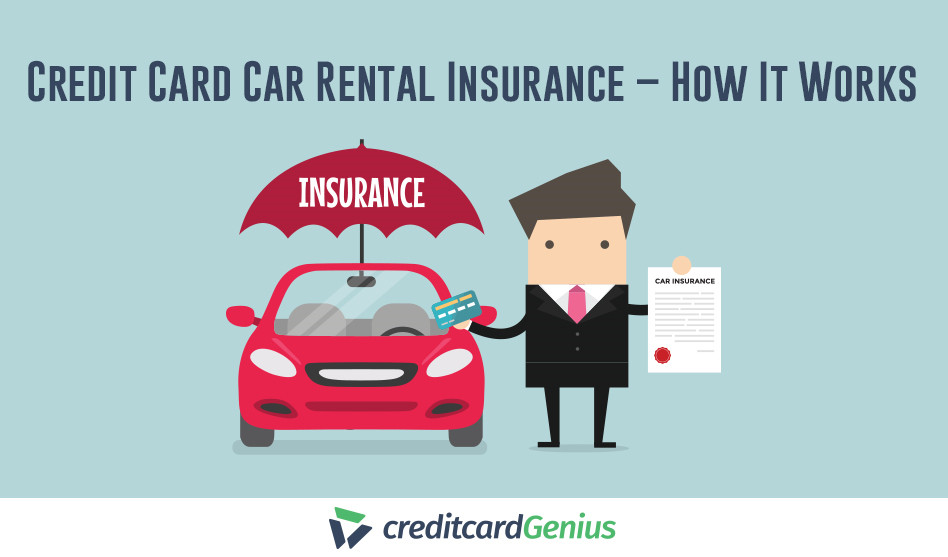




































Comments
Leave a comment
Required fields are marked with *. Your email address will not be published.
Showing 23 comments